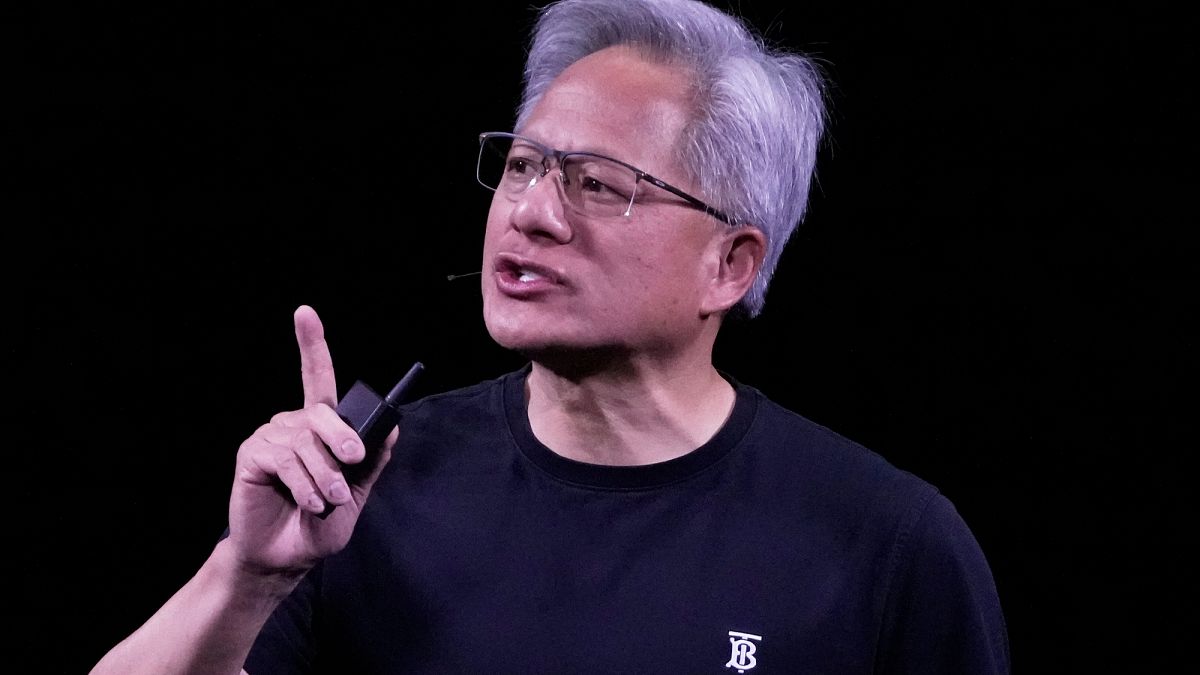Jensen Huang, the CEO of Nvidia, is preparing for a pivotal media briefing in Beijing on July 16, a visit that comes at a time when the tech landscape is fraught with tension. As Nvidia hits the remarkable
Did You Know
The Eiffel Tower can be 15 cm taller during the summer due to thermal expansion.
?
AD
milestone of a $4 trillion market valuation, concerns regarding the company’s role in China’s military ambitions have escalated. A bipartisan group of U.S. senators has expressed their unease about Huang's trip, urging him to refrain from interactions with companies that could undermine U.S. chip export controls and potentially fuel China’s efforts to modernize its military capabilities.
In a bold response to these concerns, Huang has asserted that China does not require Nvidia’s technology for its military objectives, suggesting that the nation can develop its AI capabilities independently. This assertion underscores a growing divide between the U.S. and China in the realm of technology, particularly as both countries race to advance their AI and semiconductor industries. The implications of Huang's statements are significant, especially considering that the U.S. government is increasingly vigilant about the export of sensitive technologies that could enhance the military capabilities of rival nations.
Amid these challenges, Huang has also highlighted the transformative potential of AI on the job market, cautioning that a lack of innovation could lead to significant job losses across various sectors. As the world grapples with the dual challenges of technological advancement and national security, Huang’s upcoming visit to China is set to be a litmus test for Nvidia’s ability to navigate these turbulent waters. The stakes are high, and the interplay between technology, trade, and geopolitical tensions continues to evolve, making Huang’s actions closely watched across both industries and governments.
Q&A (Auto-generated by AI)
What role does AI play in Nvidia's strategy?
AI is central to Nvidia's strategy, positioning the company as a leader in AI hardware and infrastructure. CEO Jensen Huang emphasizes that AI technology drives demand for Nvidia's products, particularly in data centers and cloud computing. The company's GPUs are critical for AI applications, making Nvidia a key player in the growing AI market.
How has US-China tech tension evolved recently?
US-China tech tensions have escalated, particularly around semiconductor technology and AI. The US government has implemented export controls to restrict China's access to advanced chips, citing national security concerns. This has led to increased scrutiny on companies like Nvidia, as they navigate the complex landscape of international trade and technology sharing.
What are the implications of Huang's China trip?
Huang's trip to China is significant for fostering relationships in a key market for Nvidia. It highlights the balancing act of engaging with Chinese companies while adhering to US regulations. The trip may also impact Nvidia's ability to expand its market presence and influence in AI development within China, despite potential political backlash.
How do US senators influence tech companies?
US senators can influence tech companies through legislation and public statements. By warning Jensen Huang about potential risks during his China trip, they underscore the importance of compliance with export controls. Their actions reflect broader concerns about national security and the implications of technology transfers to countries like China.
What risks do US companies face in China?
US companies in China face several risks, including regulatory challenges, intellectual property theft, and geopolitical tensions. The potential for sanctions or restrictions from the US government adds complexity, as firms must navigate a landscape where compliance with both US and Chinese laws is critical for maintaining operations.


















